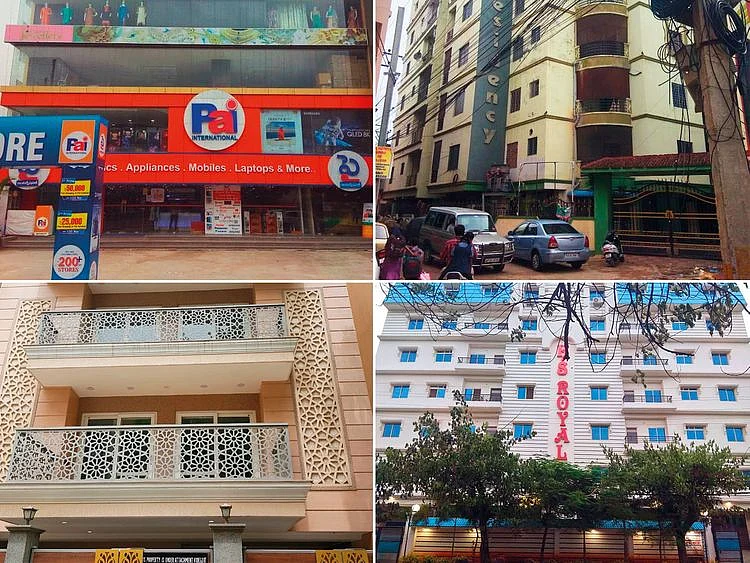Will Heera Group’s UAE victims get their money back?
Indian authorities seized group assets worth Dh154m over the weekend

Dubai: Heera Group victims in the UAE have welcomed the crackdown against the dodgy Indian company but remain unsure if the move would help them recover their investments.
On Friday, India’s Enforcement Directorate (ED) announced the seizure of Heera Group’s assets worth about Dh154 million. These include 96 immovable properties located in Telangana, Kerala, Maharashtra, Delhi and Andhra Pradesh in India, besides several bank accounts belonging to Heera Group’s 46-year-old CEO Nowhera Shaik who has been under arrest since October 2018 for running a Ponzi scheme,
The federal probe agency said Heera Group illegally collected about Rs56 billion (Dh2.88 billion) from around 172,000 investors after promising them up to 36 per cent annual returns.
It’s not immediately known how many of these investors were based in the Middle East but Hyderabad-based whistle-blower and president of All India Heera Group Victims Association Shahbaz Ahmad reckons their number could be in thousands.
The Enforcement Directorate said Heera Group operated as many as 10 bank accounts in the UAE and Saudi Arabia where investors would deposit money in the hope of getting attractive returns.
A Sharjah-based Indian expat who invested Dh200,000 through Heera Group’s Dubai office at Fortune Executive Tower in Jumeirah Lakes Towers (JLT) in 2016 said he is happy with recent developments but doubted if the seizure of the company’s assets would have any bearing on his situation. “I am being realistic because I know that it’s highly unlikely that I will get back my money,” he said.
Similarly, Dubai-based A. Ahmad who pegged his losses at Dh300,000 wondered if he would be considered for payout if Heera’s assets were liquidated and auctioned by the Indian government.
Whistle blower Shahbaz Khan said the best recourse for investors based outside India is to contact local authorities in their countries of residence and lodge police complaints.
“Under Indian law, the proceeds from the sale of Heera’s assets will be distributed only among those who have lodged complaints. Those who have not staked claims will be kept outside of the purview of the law,” Khan told Gulf News on Saturday.
However, many victims said they haven’t taken the legal route to recover their investments as they were daunted by high costs.
“Filing a civil suit is an expensive proposition. Besides depositing six per cent of the total claim or the maximum cap of Dh40,000 as court fees, claimants have to also pay a lawyer and bear other associated costs. I will not put good money on bad money,” said an Indian engineer who took a bank loan to invest Dh250,000.
The Enforcement Directorate said Heera Group’s CEO did not have any permission to collect deposits from investors.
“Nowhera Shaik started gold, food and textile trading businesses only to create the impression that she was earning legitimate profits, but in reality, the payouts to the new members were simply being funded from the cash flows generated from new members and investments.
The volume of business in her gold, textile and food marts was minuscule and not sufficient to justify the high returns promised by her,” the ED said in a statement. “Shaikh along with her family members and close associates diverted the depositors’ money to their personal accounts and amassed huge movable and immovable assets for wrongful personal gain.
“The diverted funds were further layered into various shell companies and in the form of benami assets (assets held by third parties) so as to ultimately cheat innocent victims and to launder these crime proceeds for personal benefit,” the statement added.
Law enacted
In recent years, thousands of Indians have lost money to Ponzi schemes disguised as legitimate investment plans. Alarmed by these scams, the Indian Parliament last month passed the Banning of Unregulated Deposit Schemes Bill, 2019, which seeks to put in place a mechanism by which depositors will get back their hard earned money.
Network Links
GN StoreDownload our app
© Al Nisr Publishing LLC 2026. All rights reserved.